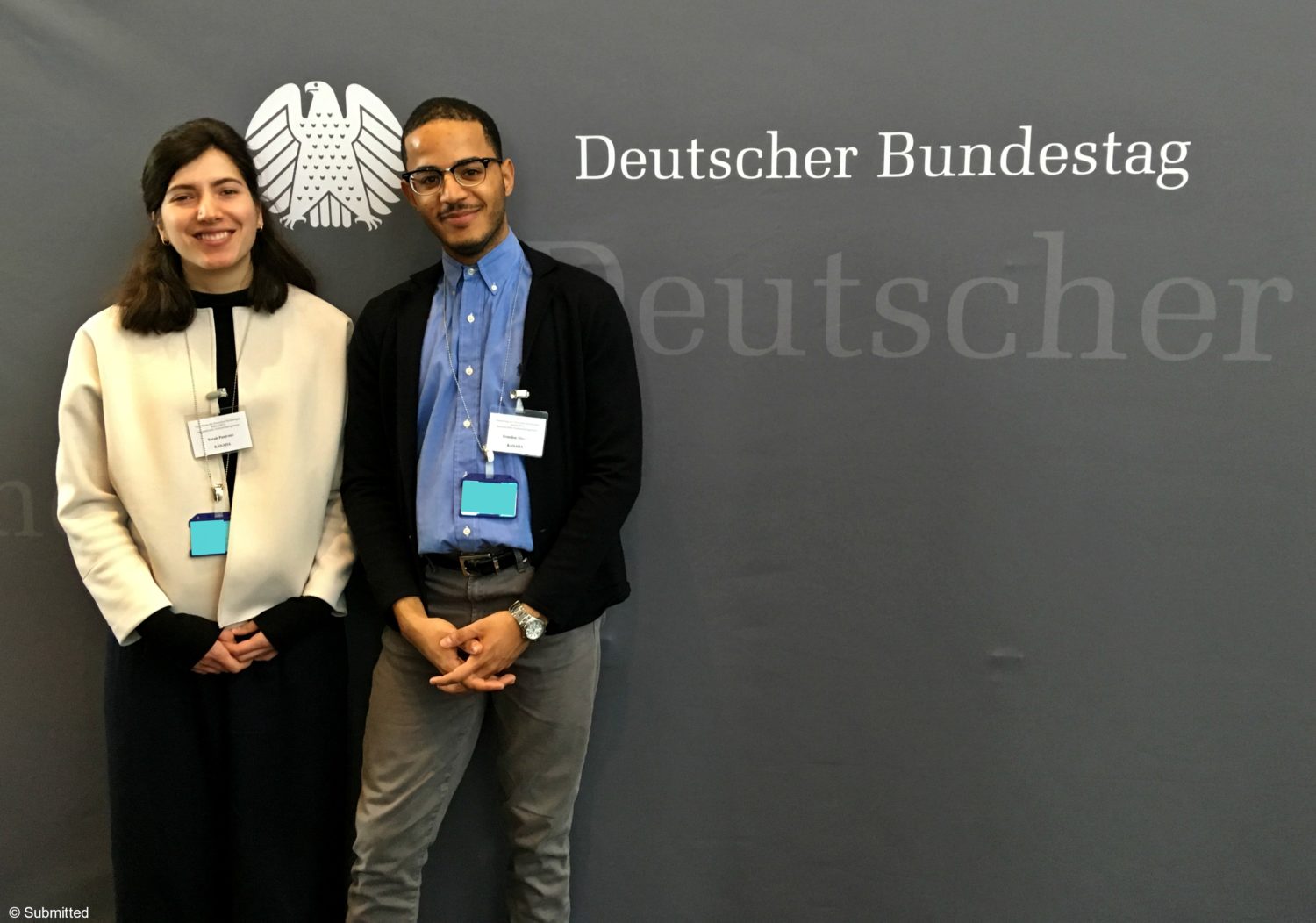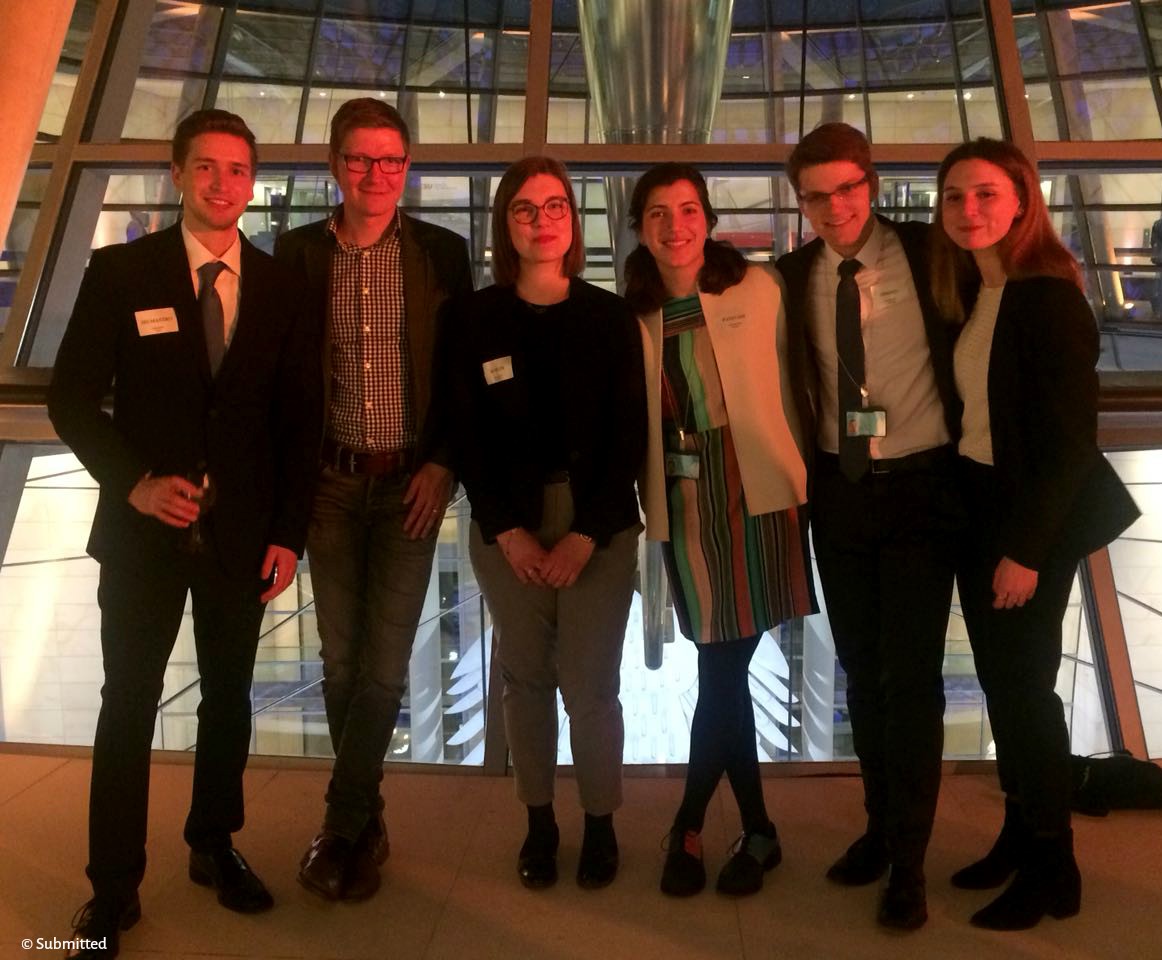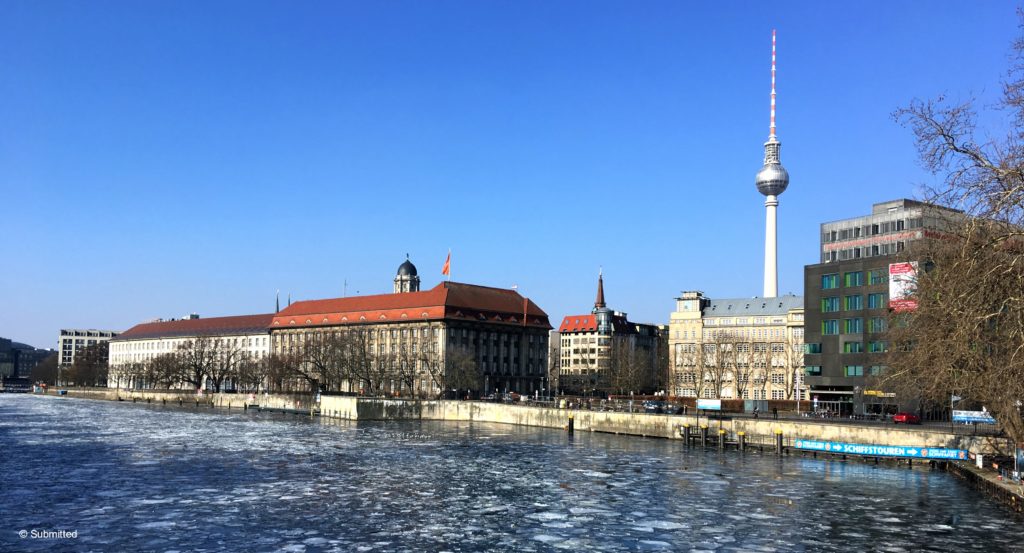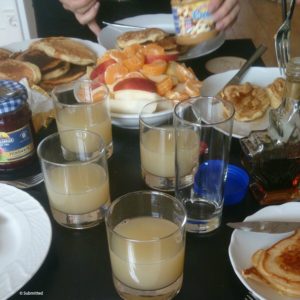Mar 22, 2018 - Kerstin Kormendy for SoGerman
Sarah Panjvani, 23, and Brendon Mustill, 24, are the first Canadians to be chosen to participate in the International Parliamentary Scholarship, which gives young adults the opportunity to work at the Bundestag in Berlin for five months with members of parliament. Participants also have the opportunity to attend classes at a Berlin university.
SoGerman met Brendon before he left for Germany and spoke with Sarah in the first week of the program.

(SoGerman) How does it feel to be the first two Canadian International Parliamentary Scholarship recipients?
(Sarah) I feel very important. They keep saying that this is the first year that Canada is here and everyone turns around and looks at Brendon and me, we wave and smile. It makes me feel very special. The professor who helped me put together my application asked if I could help other students who are interested in doing this. So, I’m really excited to be back in Canada and tell people about this opportunity and the IPS scholarship.
(Brendon) I feel like I have a lot of responsibility! I mean I’ve never been in an ambassador position, but it feels like I am a sort of ambassador for Canada. Already during my exchange, people were asking, how’s Canada? I want to do my country service and I want to convey my country to the Germans or the other 42 countries, who will be there, properly. It’s a lot of pressure being only two Canadians over there, but I think it will be really fun to be there as well. I think it’ll be really fun to not only understand from the Germans but also the people from the other countries as well, to see how they perceive their countries, how they perceive Canada. To learn how Canada is seen in the world because sometimes, you’re in a bubble here.
(SG) What made you apply for it?
(Sarah) During my studies, I was trying to figure out what to do next. And I actually had already been planning on coming to Germany. So, this application came at the perfect time. I studied linguistics, not political science, but during my studies, I was doing a lot of volunteering mostly to do with food security and sustainability. So, I’m interested to learn more about this from a political perspective.
(Brendon) Because I already had taken courses in refugee law and “Einführung in die Bundesrepublik Deutschland” (Introduction to the Federal Republic of Germany), I felt I could build upon the experience and be in the Bundestag, the centre of politics in Germany, at this time especially with all this commotion, there are no words to express what experience it might be and I’m really eager to find out how it will be during these tumultuous times.

(SG) Why are international exchanges so important?
(Sarah) For me personally, I can learn to care most about something when I have a personal relationship to it. And so, if we want our world to go forward at all, if we want to be creating a global community, learning about each other and respecting other countries’ decisions, especially understanding where they come from, it’s important to have a personal connection to be able to put yourself into somebody else’s shoes to understand their full perspective. Especially when it comes to politics!
(Brendon)In order to be more open to the world. I mean in these times, when everyone seems to be closing in on themselves and fighting for themselves, it’s really important to say, we have more in common than not in common. You may also realize that we have our ideas of Germany or Canada, for whatever reason people may think they’re this or that, but when you go there, it’s different. And not all Germans are the same and not all Canadians are the same. That’s one thing you realize when you go abroad.
(SG) What skills did you bring with you and what skills do you want to bring back with you to Canada?
(Sarah) I think it’s good that I studied linguistics and not political science. They seem to have invited people from different backgrounds and that means that I have a more open mind when it comes to politics. I will be very adaptable and a quick learner – more like a sponge. I don’t have anything blocking when they talk. I hope to bring back a better idea of what the world looks like. Most of the other participants are from Eastern Europe or the Middle East. In Canada, we don’t hear that much from those parts of the world, and when we do, it’s in relation to conflict. I’m hoping that I can bring back more perspectives when I come home. I’m not sure yet what the work will look like. I hope to bring back more hard skills and knowledge about how the political system works. And of course, a much better level of German.
(Brendon) I have a legal background, I did my Bachelor of Civil Law and a Jurors Doctor, which is very American and French centered. I don’t have the most extensive knowledge of the German political system, the German legal system, that’s one thing that I would like to be able to learn. To have a comparison to see what works, what doesn’t work and to bring it back to Canada. Having learned about the German history, I’m glad I already have this basis, having visited monuments, having been immersed in German culture through my studies, I believe that those are skills that I’ll be able to bring.

(SG) Sarah, what motivates you to advocate for and learn more about sustainability?
(Sarah) It’s been a passive part of my life. Just the way my parents brought me up was to be conscious of my imprint on the world, conscious of where my food comes from, conscious of where my clothing comes from. In my elementary school, we had a green roof and we learned about composting and gardening, so I was lucky to have this as part of my life at a very young age. But I took it for granted when I went away to university and put it more into perspective that not everyone grew up in such a way. Then I was able to take it more into my own hands to take concrete steps to make sure I was continuing to learn about that.
(SG) Brendon, what interests you in law? Why do you choose this to pursue in your studies, in your life?
(Brendon) I was very interested in social justice for a long time. Economic justice, social rights, and so, I knew which courses interested me. My professors in both constitutional and criminal law were amazing and confirmed my interest in social justice. To be able to say, OK, working in criminal law and constitutional law, which are public law, public domains, I will be able to go home at the end of the day and say I made a difference in something, however small it was, which I don’t think I would be able to say to a greater degree in contractual law if I’m helping a business or a big corporate law firm, making someone rich getting richer. Basically, I’m interested in constitutional law, because it touches the big questions of society that have such a strong impact.

(SG) What would be a message that you give other young people when it comes to moving something, changing something in the world?
(Sarah) I would say power in numbers and I think empathy is very important as well.
(Brendon) The role of young people … first, we should get off Snapchat. And our couches. And read a book. I’m not trying to sound like a grandpa to my nation, but I mean go to the library and read about these things, because when you’re young, you think you have two hundred years to live, but you don’t. In my case, I’d always been interested in learning and gone to the library and still go to the library to read tons and tons of books to learn as much as I can. Because most of your education doesn’t happen in school. Don’t just trust what your teacher is telling you, but learn from elsewhere in order to be more open to society and know what’s going on. You don’t need to get into these organizations all the time, sometimes you have commitments, you have to work. But know what’s going on. And in order to be a better citizen in your country, be informed so that we choose our governments more wisely so that we are able to hold our governments accountable more wisely, to make sure that they are going our work. Basically to be more open, to learn as much as you can, however, you can, go to the library, go on exchanges, go travelling if you can. I am not asking young people to change the world, but to change themselves that in term change can come collectively.
After graduating with a Bachelor in linguistics from McGill University, Montréal, Sarah is now working with a SPD Bundestag member, who focusses on environmental politics and nature conservation – which tap right into Sarah’s passion for sustainable living. During her studies, Sarah volunteered with Engineers Without Borders, the “meals on wheels” organization Santropol Roulant, as well as an International Buddy helping new students at her university integrate into Montreal and university life. An avid rock climber, she already explored three climbing gyms in Berlin with other IPS participants.
Brendon graduated with a Bachelor of Civil Law and a Jurors Doctor from the Université de Montréal. He will be working with a Die Grünen Bundestag member. With language proficiencies in English, French, German, Spanish and Catalan and a love for reading, he challenges himself to browse through at least 30 books every year; in 2017 he completed almost 90.
The International Parliamentary Scholarship has been off to great start for them. A few weekends ago, they treated fellow scholarship recipients to a Canadian pancake breakfast with Canadian maple syrup.

Interviews have been shortened.